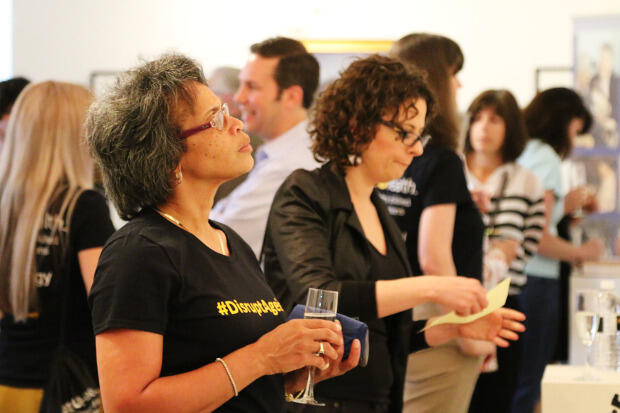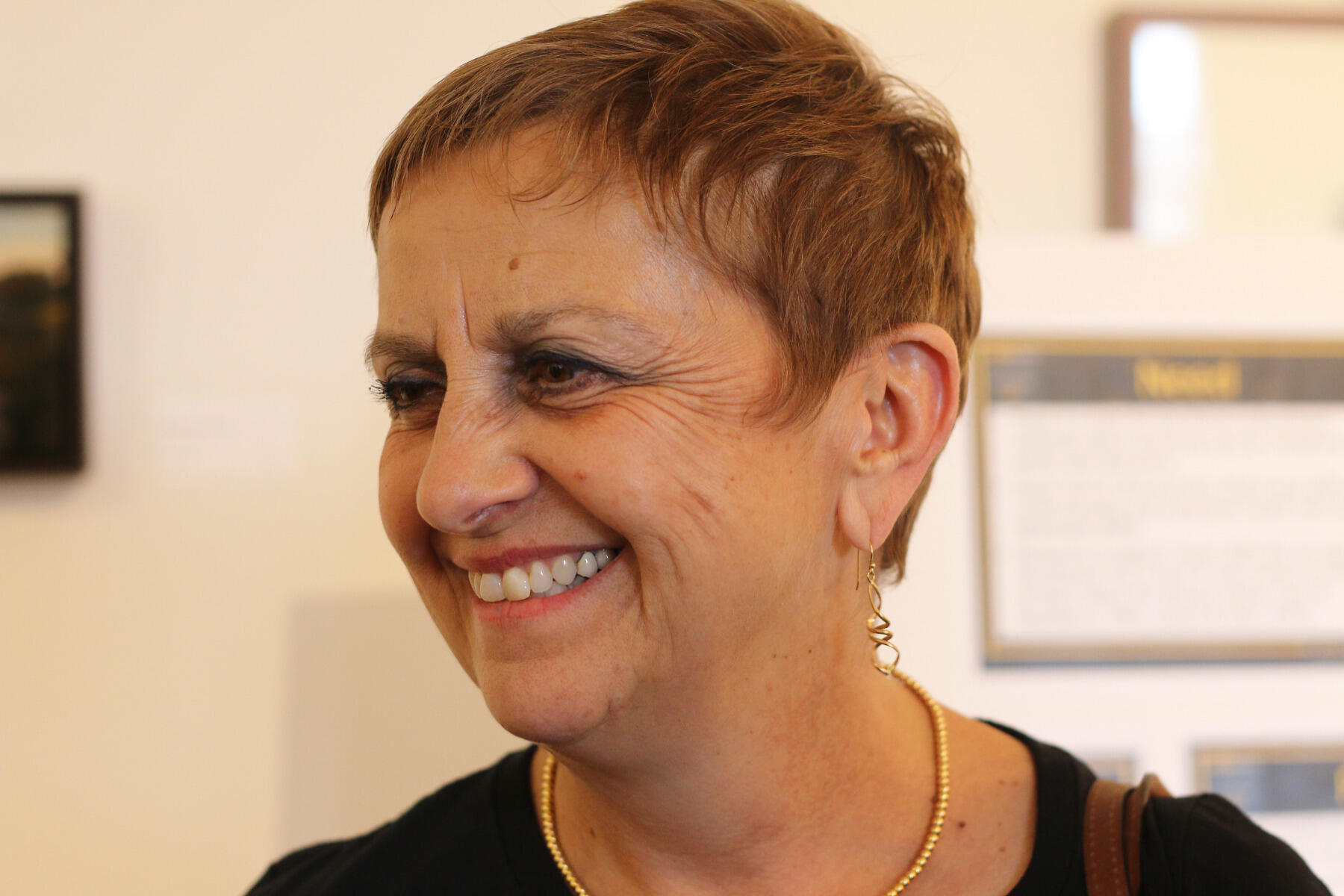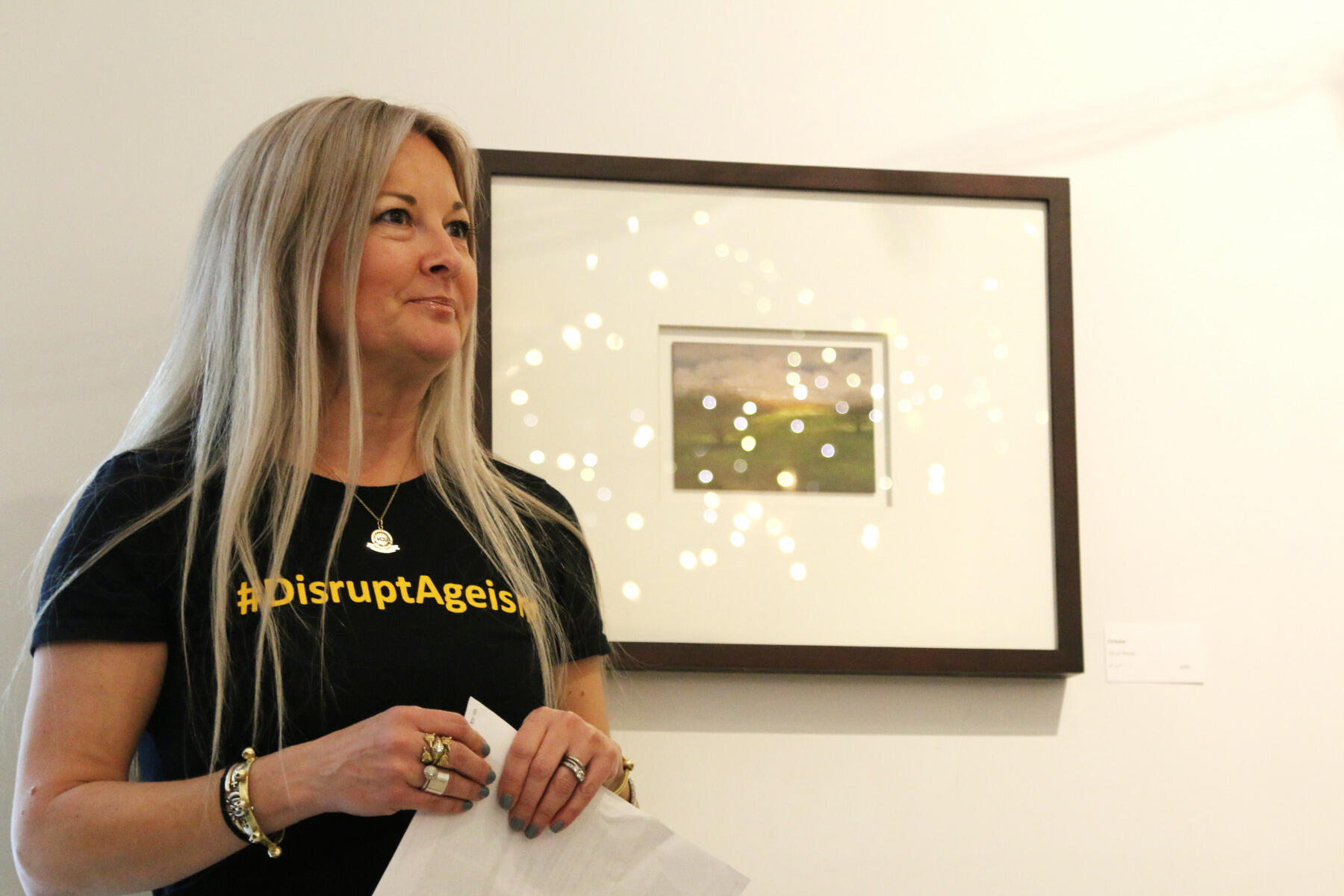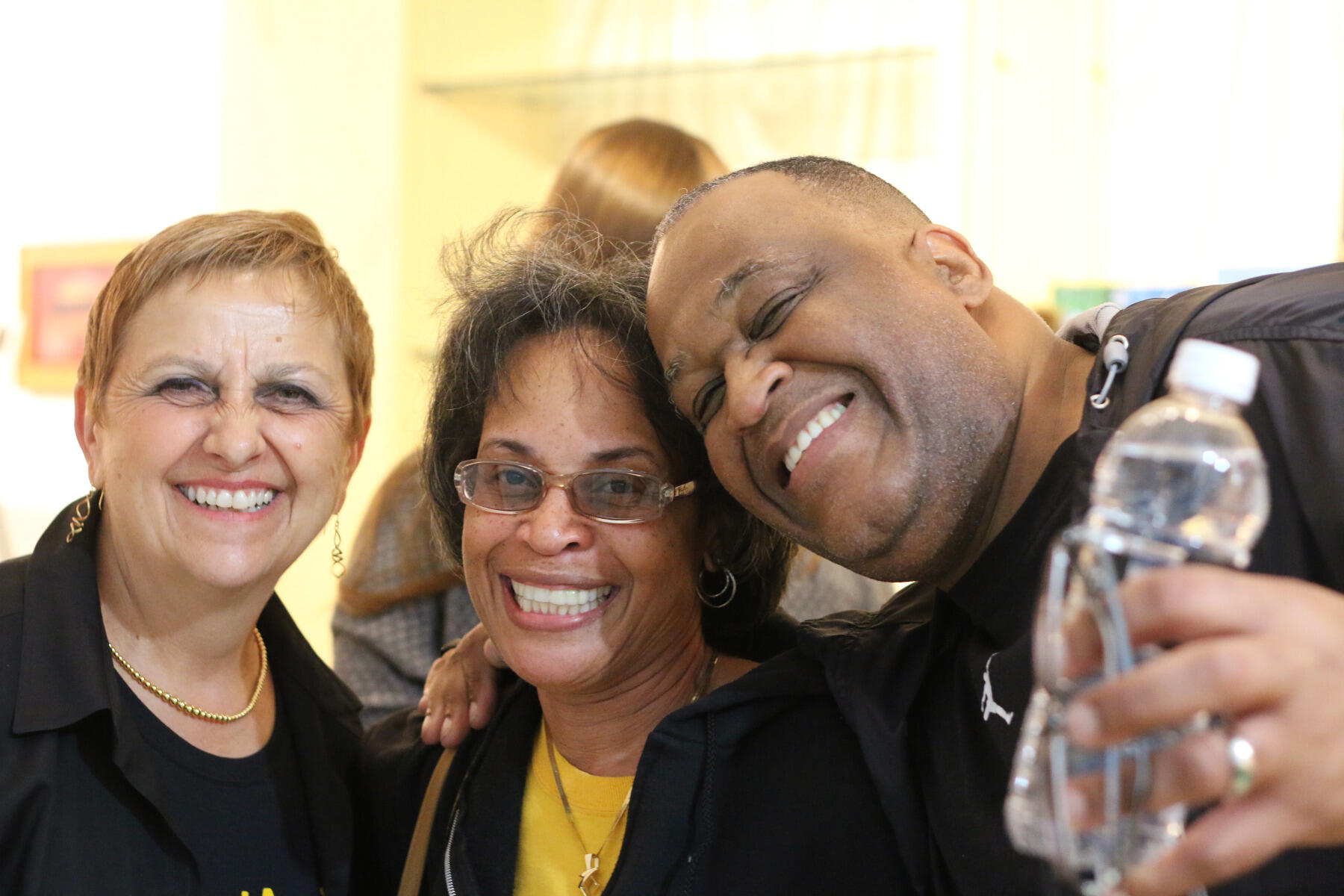
April 29, 2016
As it celebrates its 40th anniversary, VCU Department of Gerontology eyes ending ageism
Share this story
When Cathy Saunders graduated from Virginia Commonwealth University with a master’s degree in gerontology in 1982, most people she met had never heard of the discipline. “Some people would think it was geology,” the 62-year-old says.
Saunders is now the chair of the advisory board for the VCU Department of Gerontology, which celebrated its 40th anniversary in Carytown last Friday. More than 100 current students, alumni, faculty and staff attended the event, dubbed a “Day of Disruption.”
“The discipline emerged out of a medical model and we are now moving toward a more wellness-based model that is focused on the benefits of longevity, positive elderhood and recognizing that aging is a natural experience and not about disease and suffering like many people think it is,” said department chair E. Ayn Welleford, Ph.D.
The theme of the event alluded to one of the department’s primary goals: ending ageism.
Naturally interprofessional
The Department of Gerontology was founded in 1976. It became a part of the VCU School of Allied Health Professions in 1985. The department offers a Master of Science in Gerontology, which is considered to be the terminal degree in the field, as well as graduate certificates in aging studies. The department also offers an undergraduate course twice a year that enrolls about 75 students each semester.
Gerontology is a young discipline.
“Gerontology is a young discipline,” Welleford said of the scientific study of age, aging and the aged. “It grew out of a lot of other disciplines because we are naturally interprofessional.”
The department partners with schools and departments on both campuses to offer programs that advance positive aging initiatives at the university and in the community.
Senior Mentoring, which launched in the fall of 2014, partners first-year medical students and students from the VCU Schools of Pharmacy and Nursing with older adults in Richmond. The students and older adults meet four times a year to talk casually about their interests and hobbies. “The notion is that students talk to elders about their lives, which is different than what most people experience as health care professionals,” Welleford said. “When people come to the doctor’s office, they don’t want to talk about their lives. They want to talk about their illness.” As the medical students and senior adults get to know one another on a personal level, they transcend generational divides and break down age-related barriers.
PALETTE, an intergenerational arts program that partners VCU students with senior adults in the community to collaborate on creative projects, was also created with the intention of connecting students and senior adults in a setting that is outside of the medical model. The program was developed in part by Tracey Gendron, Ph.D., who is the Department of Gerontology director of community engagement and research. The interdisciplinary program includes students and faculty from the VCU Schools of Allied Health Professions, Dentistry, Pharmacy and Social Work and the Department of Dance and Choreography in the School of the Arts.
“Gerontology has applications in every discipline, from business to pharmacy to education,” Saunders said. “Nearly every program at the university should have some interface with gerontology.”
Entrepreneurial encouragement

After graduating in 1982, Saunders worked as an adult services supervisor at the Virginia Department of Social Services. “I was working in a program development and administrative level, but over time I began to have more of an interest in working directly with older people,” she said. Saunders had also always been interested in real estate, so she decided to combine her two interests. She now works as a senior real estate specialist at Long & Foster and a portion of her business is devoted to working with people who are ages 55 and older. “There is a need for housing and aging to be combined,” Saunders said.
Entrepreneurial gerontology is encouraged in the VCU Department of Gerontology, with many graduates developing businesses that cater to older adults. “So many of the careers in aging haven’t even been considered yet,” Welleford said. “We encourage our students to tailor their skill set to meet a community-identified need.”
The department hosted the first Aging 2.0 Richmond event on the Monroe Park campus in November. Aging 2.0 is a global organization that aims to accelerate innovation that will improve the lives of older adults around the world. At the event, six age network professionals including VCU alumni pitched their original ideas and products in the field of aging to a judge’s panel that awarded the winner with a cash prize and a free ticket to the national Aging 2.0 conference in San Francisco.
“People see a need in the community and they say, ‘I could build a business around this,’” Welleford said. “VCU is a rich place to experience that.”
Community engagement
In addition to encouraging entrepreneurialism, the department empowers students to identify and meet community-identified needs so that they can lead efforts toward a solution.

Students enrolled in the Master of Science in Gerontology program work with the Greater Richmond Age Wave every year to identify communities in Richmond that are good places to age. The students visit various Richmond communities and measure friendliness toward aging with a checklist.
“They have found that all of those communities have great things to offer and they also have things that they could benefit from,” Welleford said. The students present their research to community organizations and businesses that work with the aging population in Richmond. Their findings are also published on the Age Well VA website.
“When I was going through the program, I had opportunities to meet people who work in the gerontology field in Richmond,” said Charlotte Arborgast, who graduated from VCU with a master’s degree in gerontology in 2012. The 26-year-old is now the commonwealth’s first dementia services coordinator and also works as a long-term care program analyst at the Virginia Department of Medical Assistance Services. Arborgast credits much of her early success in her career to the department’s emphasis on getting involved with gerontology-related community organizations during school. “The department always encouraged us to go to events in the community and to volunteer while we were in school,” Arborgast said. “That was huge in advancing my career and getting experience in the field.”
Training for the future

In just 40 years, the VCU Department of Gerontology has graduated more than 500 students from the master’s degree program and awarded graduate certificates in aging studies to gerontology practitioners from across the commonwealth.
Gerontology has come a long way from when Saunders graduated in 1982 and as the U.S. population continues to age, the field will continue to grow.
As the only university in Virginia to offer a Master of Science in Gerontology, VCU attracts the future leaders of the field. Approximately 10 students graduate from the master’s degree program each year and VCU is committed to ensuring that each of those students has a role in shaping the future of the discipline.
“Gerontology is an exciting area to be in because there are still opportunities to make changes and have an impact,” Welleford said. “We are training the future leaders of gerontology.”
Subscribe for free to the weekly VCU News email newsletter at http://newsletter.news.vcu.edu/ and receive a selection of stories, videos, photos, news clips and event listings in your inbox every Thursday.
Subscribe to VCU News
Subscribe to VCU News at newsletter.vcu.edu and receive a selection of stories, videos, photos, news clips and event listings in your inbox.










